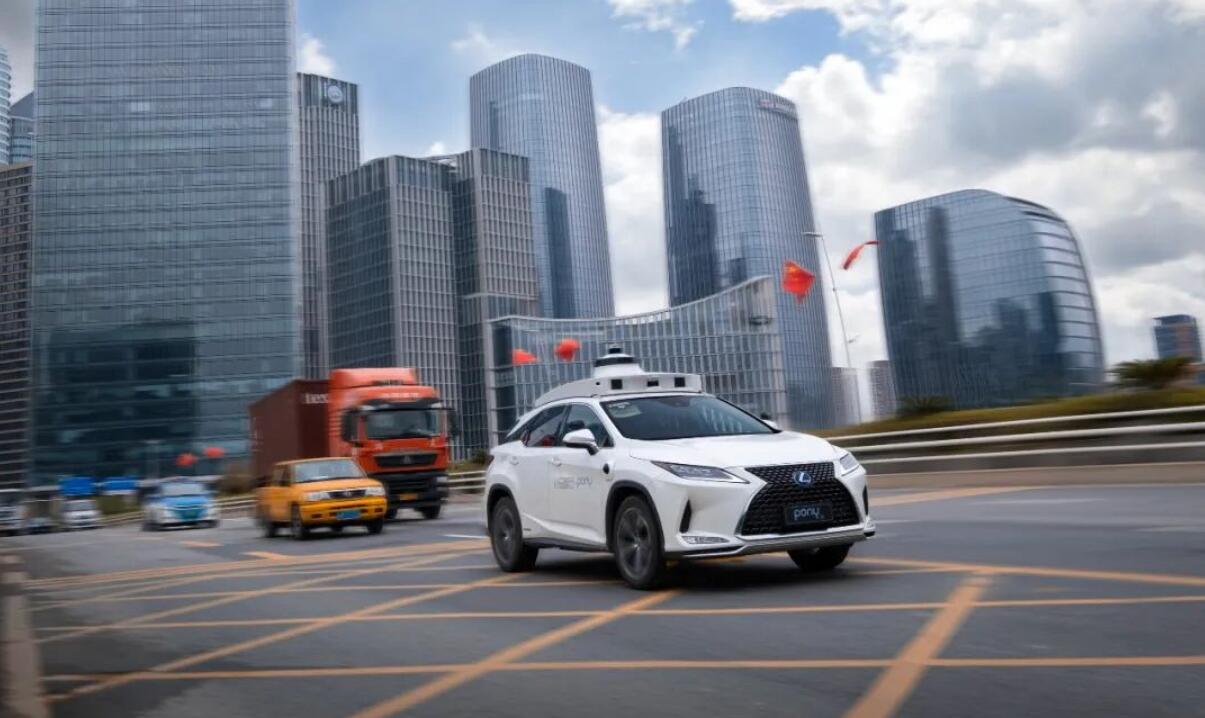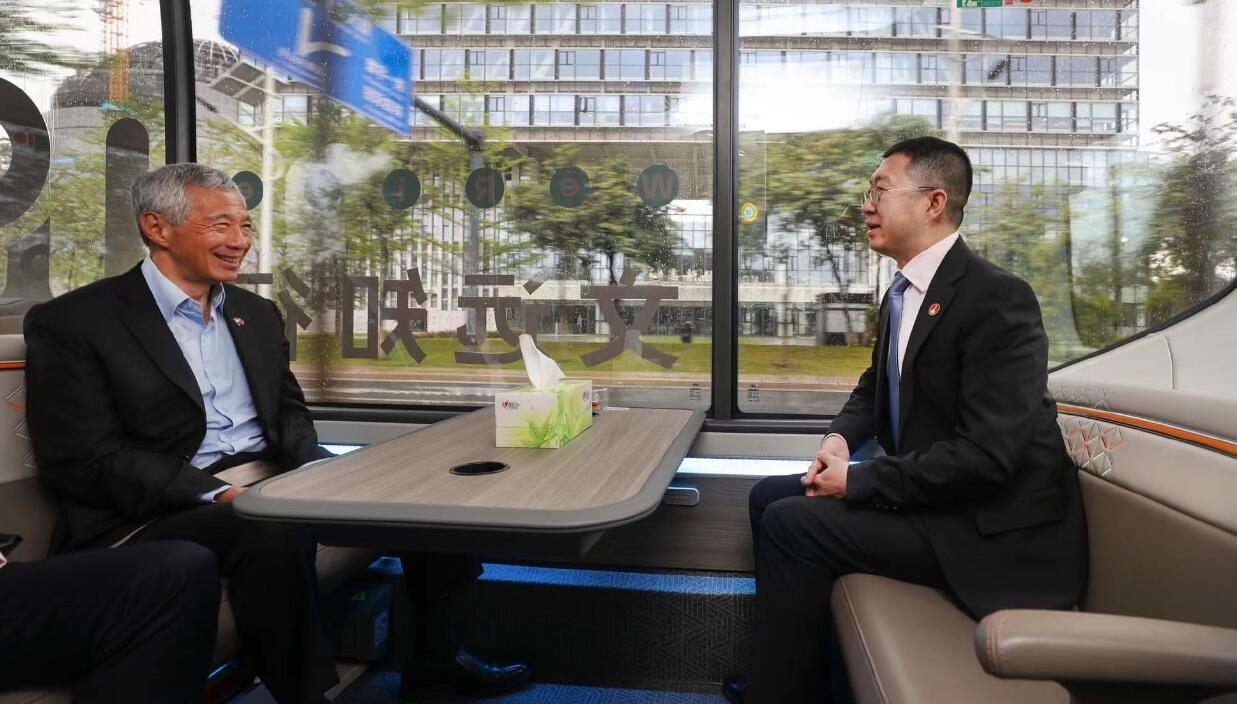DriveGPT will reshape the route of vehicle intelligence technology, allowing assisted driving to evolve faster and autonomous driving to come sooner, said Haomo CEO.

(Image credit: Haomo)
The popularity of ChatGPT has led players in the autonomous driving industry to start expecting more from artificial intelligence (AI) technology. Now, a Chinese startup has released a large model of self-driving cognition, becoming the first in the industry to do so.
Great Wall Motor-backed startup Haomo.AI Technology officially launched DriveGPT today, after it previewed the AI large model in February.
DriveGPT is the first generative large model for autonomous driving that will reshape the technological path to automotive intelligence, the Beijing-based company announced today at its 8th Haomo AI Day event.
The AI model builds RLHF (Reinforcement Learning from Human Feedback) technology by bringing in driving data for continuous optimization of self-driving cognitive decision models.
The goal of DriveGPT is to achieve end-to-end autonomous driving, and at this stage, it is mainly used to solve the cognitive decision problem of autonomous driving, said Gu Weihao, CEO of Haomo, at today's event.
DriveGPT has been opened to a limited number of partners, and the first batch includes Beijing Jiaotong University School of Computer and Information Technology, Qualcomm, Volcano Engine, Huawei Cloud, JD Technology, NavInfo, WEY Brand, and Intel.
What is DriveGPT?
GPT (Generative Pre-trained Transformer), essentially solves for the probability of the next word occurring, sampling from a probability distribution and generating a word with each call.
This continuous loop generates a sequence of characters for various downstream tasks. ChatGPT evolved on such a model.
On February 17, as the AI frenzy generated by ChatGPT continues worldwide, Haomo upgraded its large model of self-driving cognition to DriveGPT, calling it the first of its kind in the world of self-driving cognition.
DriveGPT completed model building and validation of the first phase of data with parameters comparable in size to GPT-2, the company said at the time, adding that DriveGPT will continue to introduce large-scale real data next to continuously improve its measurement.

At today's Haomo AI Day, Gu provided more technical details about DriveGPT.
Simply put, DriveGPT is the GPT large model in autonomous driving, which is also solving for the probability of the next Token, according to Gu.
Each call is equivalent to generating a Token based on a sequence of pre-trained Tokens, which are equivalent to a word in natural language processing, except that DriveGPT's Tokens are used to describe driving scenarios.
The sequence of Tokens is a complete time sequence of driving scenarios, including the next possible state of the entire traffic environment and the state of the car.
Under a unified generative framework, DriveGPT can do multiple tasks including planning, decision making and reasoning all together, according to Gu.
DriveGPT's pre-trained model uses 120 billion parameters and is based on 40 million production vehicles' driving data.
In addition to that, Haomo used partially screened human takeover data -- roughly 50,000 Clips -- for training the feedback model, according to Gu.
To easily understand the logic behind this, Gu gives an example:
Suppose we give a prompt to reach a certain target point, this prompt may come from the navigation of a map, or in the future it may come from human voice instructions during voice interaction.
DriveGPT will generate many possible driving styles, some aggressive -- change lanes continuously to overtake and reach the target point quickly, and some will be more steady -- follow other cars to the end.
If there are no other additional prompts, then DriveGPT will follow the optimal results from the feedback training and deliver a result that is more in line with most people's driving preferences.
Coming soon
Haomo is continuing to optimize DriveGPT, and the initial results will first be used in the new Mocha DHT-PHEV with Haomo HPilot 3.0, Gu said.
The Mocha DHT-PHEV is a model of Great Wall Motor's premium brand Wey, and Gu said the model will be available soon.
"We can also provide an excellent driving experience for city NOH (Navigation on HPilot)," Gu said.
In addition to city NOH, scenarios including city cruising, driving shortcut recommendations, and extrication, autonomous driving capabilities are also expected to see new breakthroughs, according to Gu.
"Ultimately we hope to arrive at the ultimate scenario of autonomous driving: driverless," he said, adding, "We believe that DriveGPT will reshape the technological path to vehicle intelligence, allowing assisted driving to evolve faster and autonomous driving to arrive sooner."

Notably, Haomo is one of the strongest players in the autonomous driving space, despite being an under-the-radar startup, especially compared to high-profile local electric vehicle companies.
Haomo was the former autonomous driving division of Great Wall Motor and became an independent company in November 2019. Its core team members come partly from Great Wall Motor's smart driving R&D team and partly from local tech companies.
In September 2022, Ora Funky Cat and Wey Coffee 01 from Great Wall Motor achieved results comparable to the Tesla Model Y in a European safety test.
Both the Ora Funky Cat and the Wey Coffee 01 were equipped with assisted driving technology provided by Haomo, which was a major reason for their high scores, especially on Safety Assist, at the time.
At the 7th AI Day event held today, January 5, Haomo announced MANA OASIS, an autonomous driving computing center launched by it and Volcano Engine, a cloud service platform owned by ByteDance, with a total computing power of 670 PFLOPS, the largest in China at the time.
The computing power support provided by MANA OASIS was key to the training and technology becoming available for DriveGPT, Gu said today.
Separately, Haomo chairman Zhang Kai said at today's event that in addition to the new Mocha DHT-PHEV, the second HPilot 3.0-equipped model, Wey Lanshan, will be launched this year.
Haomo's HPilot has been installed in nearly 20 models and has assisted users to drive more than 40 million kilometers, Zhang said.
In overseas markets, vehicles equipped with HPilot have been shipped to regions including the European Union and Israel and delivered to local consumers.
Vehicles equipped with the driving assistance system will be available in the Middle East, South Africa and Australia, and the Mexican and Russian versions of HPilot will be in mass production soon, Zhang said.


The post Haomo's self-driving ambitions leap forward with launch of DriveGPT appeared first on CnEVPost.
For more articles, please visit CnEVPost.





















 Haomo DriveGPT has now completed model building and validation of the first phase of data, with parameters comparable in scale to GPT-2.
Haomo DriveGPT has now completed model building and validation of the first phase of data, with parameters comparable in scale to GPT-2.